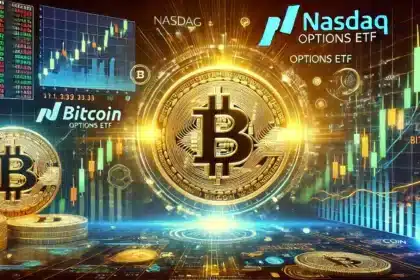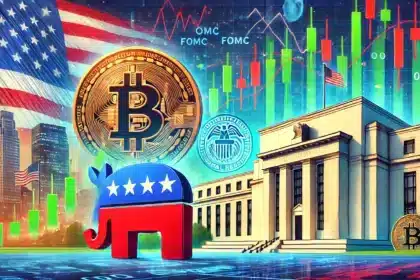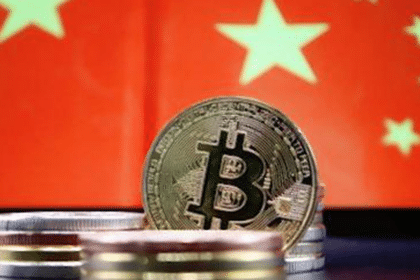As the U.S. Securities and Exchange Commission (SEC) undergoes a critical leadership change, outgoing Chair Gary Gensler issued a grim warning about the state of the cryptocurrency market. Just days before Paul Atkins — a noted crypto advocate — officially assumed his role as the 34th SEC Chair, Gary Gensler cautioned that the industry is teetering on the edge of a severe correction.
The transition marks a turning point in U.S. crypto regulation, setting the stage for a shift from Gensler’s stringent enforcement-driven policies to a potentially more open, industry-aligned framework under Atkins.
Gensler Sounds Alarm on “Speculative” Crypto Market
In an interview with CNBC, Gary Gensler didn’t mince words. He claimed that “most crypto tokens will fail”, citing their lack of intrinsic value and overreliance on hype and sentiment. He reiterated a position he has long maintained — that while Bitcoin may endure as a form of “digital gold,” over 10,000 altcoins in circulation today are largely “non-compliant securities with no actual use case.”
“History teaches us that speculative bubbles pop. This time won’t be different,” Gensler said. “Investors must understand the risks of tokens that promise the moon but lack fundamentals.”
The warning, coming from one of the most powerful figures in financial regulation, triggered concerns across the crypto community and added fuel to the ongoing debate about the future of crypto oversight in the U.S.

Enter Paul Atkins: A Pro-Crypto Successor
Paul Atkins, a former SEC Commissioner during the Bush administration, was sworn in on April 23, 2025, as the new Chair of the SEC. Known for his libertarian leanings and pro-innovation stance, Atkins has openly criticized Gary Gensler’s aggressive enforcement-first approach.
“Crypto needs clarity, not crackdowns,” Atkins stated during a Senate confirmation hearing in March. “We need to work with the industry, not against it.”
Atkins is expected to pursue a more collaborative regulatory framework, particularly around crypto ETFs, staking services, and decentralized finance (DeFi) protocols. His appointment has already sparked optimism among investors hoping for a less hostile SEC environment.
Market Reactions Mixed Amid Regulatory Uncertainty
Gensler’s warning comes at a volatile time for digital assets. Bitcoin (BTC) is currently trading around $93,000, while Ethereum (ETH) has struggled to maintain footing above $2,450. Altcoins have seen increased sell pressure, with Solana (SOL) and Avalanche (AVAX) among the hardest hit.
While some investors view Gary Gensler’s comments as another attempt to dampen sentiment before his exit, others fear that a broad market correction may be imminent, especially as macroeconomic headwinds persist.
At the same time, the appointment of Atkins has led to renewed confidence in certain segments of the market. Analysts at CoinShares reported that institutional inflows into Bitcoin ETFs surged by over $500 million in the past week, signaling renewed long-term interest.
Atkins Expected to Re-Evaluate Pending Crypto ETF Applications
One of the most anticipated tasks awaiting Atkins is the review of several crypto ETF proposals, including pending applications from BlackRock, Grayscale, and Fidelity. While Gensler delayed or rejected many such filings, citing investor protection concerns, Atkins has voiced support for expanding retail access to regulated crypto investment vehicles.
“There’s no reason a spot Bitcoin ETF should be treated differently than futures,” he said during his confirmation.
Market participants hope Atkins will also address the ambiguity surrounding staking-as-a-service, a sector Gensler labeled as “unregistered securities activity.” This crackdown has led to lawsuits and platform exits, stifling innovation in DeFi ecosystems.

Industry Divided on Gensler’s Legacy
Gary Gensler’s tenure at the SEC has been polarizing. Supporters laud his attempts to bring order to a chaotic space rife with scams and pump-and-dump schemes. Critics, however, argue that his heavy-handed tactics have driven innovation offshore and created regulatory uncertainty.
Under Gensler, the SEC launched enforcement actions against Ripple Labs, Coinbase, Binance, and several other major players. His legal battle with Ripple, although resulting in a partial loss for the agency, set a precedent for how tokens may be classified under U.S. law.
What Comes Next?
The transition from Gensler to Atkins signals a possible regulatory reset. Industry stakeholders are hopeful that the SEC will shift toward rule-making and dialogue, rather than litigation-first strategies.
Still, Atkins’ tenure is unlikely to be free from challenges. With growing political scrutiny, economic instability, and lingering distrust in the wake of scandals like FTX, the crypto sector remains a minefield of risk and opportunity.
As the market looks to rebound from Gary Gensler’s cautionary note, all eyes will be on Atkins to see whether he delivers on his promise of regulatory clarity — or faces the same headwinds that plagued his predecessor.
Frequently Asked Questions (FAQs)
Why did Gary Gensler warn about a crypto crash?
He believes most tokens are speculative, lack real use cases, and are at risk of collapse.
Who is Paul Atkins?
A former SEC commissioner and crypto advocate, now serving as the 34th SEC Chair.
How might this leadership change impact the cryptocurrency industry?
Atkins may push for more regulatory clarity and support for ETFs, easing the environment for crypto firms.
What are the market implications of Gensler’s warning?
It may lead to temporary volatility, but long-term investors are looking to Atkins for clarity.
Glossary of Key Terms
SEC (Securities and Exchange Commission): U.S. regulator overseeing securities and investor protection.
ETF (Exchange-Traded Fund): A financial product that tracks assets like Bitcoin and is traded on traditional exchanges.
DeFi (Decentralized Finance): Blockchain-based financial systems without intermediaries.
Altcoin: Any cryptocurrency other than Bitcoin.
Sources
CNBC Interview with Gensler – April 2025





























